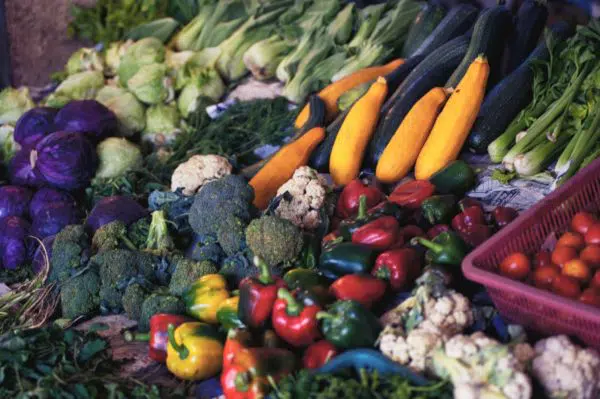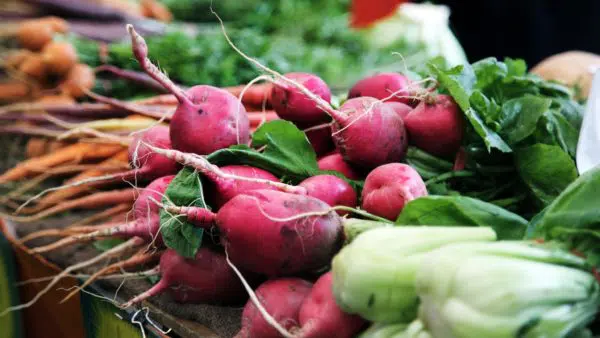
We’ve all bought food with the best intentions – eating the leftovers from our favorite restaurant at a later date, or incorporating a particular item into one of the many recipes we planned to try for the first time.
Work, kids, and life in general can get in the way of our good intentions. Many of us are just too tired to cook at the end of the day. Or, the juggling of responsibilities causes us to forget the food we’ve been saving. Unfortunately, the end result is wasted food that ends up being thrown away.
But we aren’t the only ones at fault. The food waste epidemic extends well beyond the kitchens of America. Large scale food waste occurs on farms, in grocery stores, cooking shows, etc. We know food waste is an issue. We now need to work together for a solution.
Why is food waste bad for the environment?
When we think about wasted food, we must also consider what it took to actually grow the food, and how it’s discarded. There are a number of reasons food waste is bad for the environment. Wasted water and land, unnecessary transportation, and the releasing of methane, wastes oil and land.
how much food are we wasting?
Based on reports provided by the FOA and the NRDC show that approximately ⅓ of food produced for consumption is wasted. $100s of billions of dollars are wasted on growing, processing, and transporting food that will never get consumed. That’s approximately 70-80 million tons of food.
They have also mentioned it that if we were to combine the land used to grow food wasted in the US, it would be about the size of New Mexico. And, depending on the mode of transportation, delivering food to the various locations emits unnecessary carbon pollution.
While on its own it’s an issue, it’s even more of a problem We must also consider when food is disposed in landfills. Once the food rots in the landfills, methane gas is the by-product. As we all know, methane is a greenhouse gas that negatively affects our environment.
How to reduce food waste
A resolution to food waste will not happen overnight. But we should still work hard to rid ourselves of this problem. The 20 suggestions listed will help you start your journey of food waste reduction.

1. Understanding Dates
Pretty much all of the food we purchase has either an expiration date, best-by date, use-by date, or sell-by date. These dates can be super confusing and often cause food we but to be thrown out too soon, or left at the market and never purchased.
Understanding these dates would help reduce our contribution to food waste.
2. Buy the “Not-so-cute” Fruits and Veggies
Unfortunately, many consumers believe the “not-so-cute” produce isn’t worth purchasing. Food waste related to “not-so-cute” is a contributor because most of this produce is being thrown away.
This produce tastes the same as the other produce that is more appealing to the eye, because there is nothing wrong with it. Don’t be afraid to purchase the not-so-cute produce—some stores offer it as a discount!
3. Correct Food Storage
Proper food storage will minimize food waste by ensuring food longevity. If you are unsure of how to store food, ask the grocer at your local market. Or, you can review the helpful chart provided by the FDA that will make food storage easier.
4. Plan Your Meals
When you plan your meals for a period of time, you follow recipes that require a set amount of food for the period since meals are more measured.
This will result in less food waste, since you are only cooking and using what you need. A quick google search can provide you with a few ideas to get you started.
5. Buy What You Need
Since much of what we throw out is uneaten food that has gone bad, only buying what we need is a great plan. With help of meal planning and recipes, we can limit food waste while saving time and money meal prepping.
6. Bulk Purchases
An easy way to purchase only what you need is buying food from the bulk bins. You never need to worry about purchasing quantities larger than necessary. Just grab your reusable containers and get what you need.
7. Use Most of Your Produce
Sometimes we’ve watched one-too-many cooking shows and want to plate our food in a decorative manner. This can be wasteful.
Try your best to use every piece of your produce—you’ll be getting more bang for your buck.
8. Cook Smaller Portions
I’m sure you’re seeing the pattern. If you are only buying what you need and planning what you need, you’ll only cook what you need. The less food remaining after your meal(s), the smaller amount of leftovers for the fridge or freezer.
9. Save Leftovers
I have met people who are appalled by leftovers and won’t eat them. If you have leftovers, don’t throw them out.
Don’t be one of those people. If your leftovers last more than a few days, get creative and change things up by creating a new meal.
10. Cook Combined Aging Produce
It’s a good idea to take an inventory of all of your produce that’s on the verge of going bad. Use the same meal creativity you used for your leftovers to create delicious meals with your aged produced.
Casseroles, soups, stews, and sautéed mixed vegetables are a few ideas to get you started.

11. Freezer Food Storage
When properly packaged, food can be stored in the freezer for an extended period. You can double check the chart I previously provided in #3 of this list to verify the time food can remain in the freezer.
12. Declutter and Organize Your Freezer and Fridge
Organizing the items in your fridge and freezer will help you keep track of expiration dates and the life of your produce.
It’s good to rotate your food by putting earlier expiration dates in the front of your fridge and later towards the back. Use see-through storage containers to keep track of your produce.
13. Preserving Produce
This is an old form of food storage that has been done for centuries. Canning and pickling are great ways of preserving food and extending its longevity. A few examples to help get you started can be found here.
14. Make Vinegar and Jams
A simple way to reuse your food scraps is by making vinegar and jams. While it takes a few weeks for someone to complete these methods, they are worth the wait.
15. Track Your Food Waste
Tracking your food waste makes you aware and holds you accountable. A good way to do this is by setting up a chart in your kitchen, or a location that makes it easily visible.
Mark the calendar as often as you discard food waste, and tally the pounds of food each week. Work on the reducing the amount of food waste each week.
16. Apps To Reduce Food Waste
Besides all the suggestions listed above, another handy tip is using a phone app to to reduce food waste. There are plenty of apps in both the US and overseas they may offer you an additional resource to be an ally for the environment.
17. Teach Your Children
An awesome way to educate your child about the importance of our environment’s health and how they can it can affect them is by teaching them how you reduce food waste.
Getting your children involved helps them understand why taking ownership of keeping our planet healthy is beneficial to them and future generations.
18. Donate Food to Friends and Food Banks
If you’ve prepared or grown more food than you can eat alone, share it friends or donate it to your local food bank, church, or charity. The EPA also offers tips for better food sustainability practices.
19. Use Food Suppliers With Sustainable Practices
You aren’t responsible for an establishment’s handling of matters related to food waste. But, you are responsible for educating yourself. Doing a little research can help you to both understand, and become more aware of food suppliers who practice sustainable food sourcing and disposal.
20. Compost
A very sustainable method for food disposal is composting. Using old food to grow new food is an easy decision. Even if you don’t have a garden, you can compost and donate it to various organizations.
This service allows you to donate food scraps for composting, and receive compost. There are a few of these kind of programs scattered around the US.
The following post 20 Ways to Reduce Food Waste (And Why You Should Care) was first published on Annmarie Skin Care.

How do you reduce food waste? Opening our comments up for discussion.